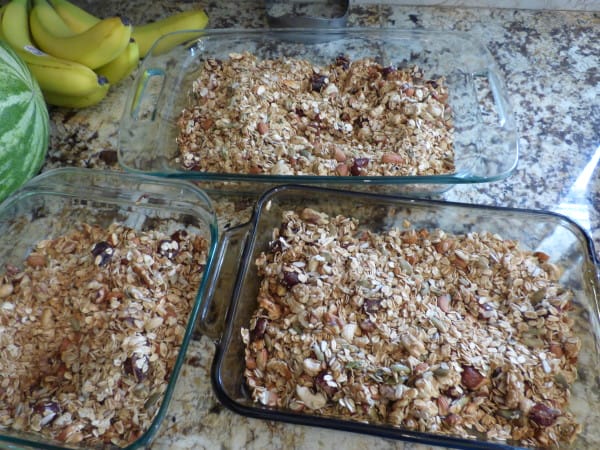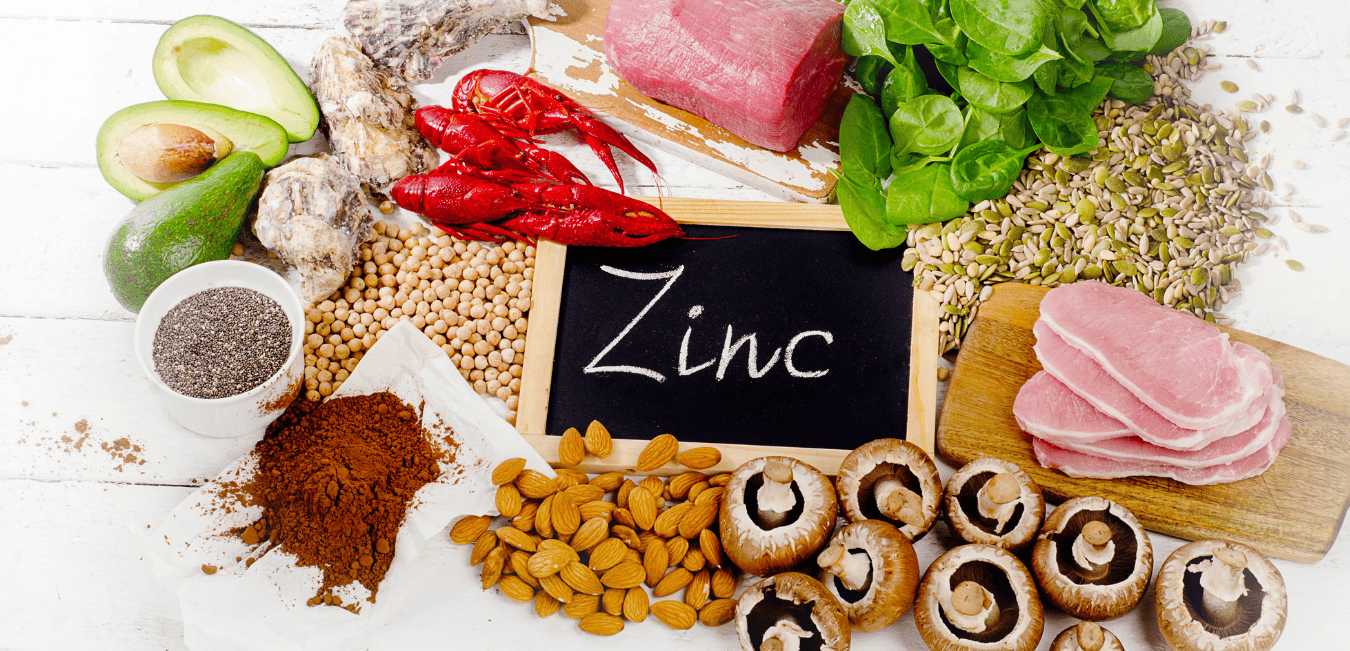Recovering from food poisoning or a stomach virus involves more than immediate symptom relief: the gut needs support to restore itself back to health. In this article, we’ll discuss how gastrointestinal health can be immediately impacted by the initial symptoms of food poisoning or a stomach bug, as well as a nutritional approach that encourages healing and outlines which foods to eat after food poisoning or a stomach bug and which ones to avoid.
For information about handling the acute phase of a stomach virus, see: How To Treat Viral Gastroenteritis (aka Stomach Flu) Naturally
The Importance Of Recovering Digestive Health
Unfortunately, stomach bugs, food poisoning, and other gastrointestinal malaise are a part of life and generally not harmful long term. However, after the acute symptoms subside, our digestive systems sometimes require quite a bit of time and support to heal and regain full health (1). After enduring the harsh effects of a virus or bacterial infection, the gut often remains in a state of heightened sensitivity and reduced function (2). This may explain why symptoms, like diarrhea, persist after the acute illness has run its course.
How Long Does It Take For The Gut To Recover From The Stomach Flu or Food Poisoning?
The time it takes for digestive health to fully recover after a stomach illness can vary greatly. While symptoms of the acute illness typically resolve within a few days to a week, the gut’s recovery can take longer. In many cases, complete restoration of the gut’s microbiome and healing of the intestinal lining can take several weeks to months (1). During this recovery period, it’s important to tune into your body’s needs and focus on nutrition.
The Connection Between Gastrointestinal Illness and IBS
Scientific evidence suggests a strong link between gastrointestinal infections and the development of Irritable Bowel Syndrome (IBS) (3).
It’s estimated that nearly half of all IBS cases begin post-infection, highlighting the lasting impact infections can have on gut health (4). Persistent low-grade inflammation from infections and alterations in gut flora, sensitivity, and permeability, which sometimes persist long after the initial infection has resolved, may be involved with the mechanism driving IBS (4).
The Depletion Of Good Bacteria During Gastrointestinal Illness
During a stomach illness, beneficial gut bacteria can be significantly depleted (5). This loss is often related to factors such as diarrhea and vomiting, which can ‘wash out’ these beneficial microbes. A reduction in beneficial bacteria can leave the gut vulnerable to colonization by opportunistic pathogens, potentially leading to dysbiosis – an imbalance in the gut microbiome (6).
For more information on gut healing, see: How To Heal The Gut
Nutrients That Support The Restoration Of The Gut After Illness
The extended impact of stomach illnesses on gut health is a compelling reason to provide our bodies with extra care and support during recovery. A thoughtful approach to diet can aid in repairing the gut lining, replenishing good bacteria, and restoring the balance of the gut microbiome.
Mucilaginous Foods For Gut Repair
After a bout of stomach illness, consuming mucilaginous foods is helpful as these foods may help form a protective layer over the mucous membranes, reducing inflammation and irritation in the gut (7). This soothing effect is helpful post-illness as it can aid in the restoration of the gut lining. Mucilaginous foods include the following:
Aloe Vera
Aloe vera is well known for its healing properties, and it can be especially soothing for the intestinal lining. Aloe vera juice is a convenient way to incorporate aloe vera into your diet. Start slow with just an ounce per day, and cap your intake at about a cup per day if that feels good. Aloe vera juice can be mixed with a small amount of another juice for pickier palates or included in smoothies, soups, or gut healing gummies.
Marshmallow Root & Slippery Elm Bark
Both marshmallow root and slippery elm bark are considered highly soothing for the mucous membranes lining the entire digestive tract (7). These are not usually consumed as standalone items but rather prepared as teas, herbal remedies, and delicious foods, like my gut loving marshmallows!
Glutamine Rich Foods For Gut Health
The amino acid, glutamine, plays an important role in maintaining gut health (8), and sufficient intake can be especially beneficial after a stomach virus or food poisoning. It is the primary nutrient for intestinal cells, aiding in their repair and regeneration (9). This amino acid is vital in preventing and rebuilding a compromised gut lining – also referred to as leaky gut. Its ability to regulate the absorption of water across the intestinal and bloodstream junction is crucial in preventing dehydration; research shows it can reduce the severity and frequency of diarrhea, a common symptom post illness (9).
 Bone Broth
Bone Broth
Bone broth is a powerhouse of minerals and amino acids, like glutamine, crucial for repairing the intestinal lining. Bone broth also contains collagen rich gelatin, which is especially beneficial during the healing phase!
Beef Liver
Beef liver is a good source of glutamine and can easily be consumed in capsule form. If you are still feeling some residual stomach irritation after your bout of illness, start slow and increase your intake as you begin to feel better.
Milk Kefir
Kefir is a fermented milk product that is available at most grocery stores. Lactobacillic fermentation of milk is known to produce glutamic acid, which the body uses to produce glutamine (10). It also has the benefit of being rich in probiotics.
Eggs
One egg contains about .8g of glutamic acid, which the body converts to glutamine, and two eggs will supply you with about half of your daily glutamine requirement (11). A scrambled egg may be one of the first foods that seem appetizing after a bout of stomach illness.
Probiotic Foods For Gut Repair
Foods rich in probiotics help restore the balance of gut flora, which can be disrupted after food poisoning or a stomach virus. These beneficial bacteria are vital for gut health and can aid in digestion and nutrient absorption. It is important to maintain a healthy and diverse balance of gut flora, as a lack of good bacteria leaves room for opportunistic or pathogenic strains to flourish (6).
Milk Kefir
Kefir is not only a good source of glutamic acid, but it’s also packed with gut-loving probiotics. Research estimates that kefir contains 300 different microbial species (12). Additionally, the lacto-fermentation process by which kefir is made digests the lactic acid in the milk, making kefir easier to digest than a glass of milk – an important consideration while recovering from gastrointestinal illness (12).
Coconut Yogurt
Coconut yogurt is made by fermenting coconut milk. Coconut yogurt has a pleasant tangy taste with a hint of coconut and is full of good fats. Cocoyo is a favorite in our house, and one 4oz serving contains approximately 100 billion CFU of probiotics.
Sauerkraut
Sauerkraut is made of fermented cabbage. The taste is pleasantly tangy and a little sour. It may be an acquired taste, especially for youngsters; however, its benefits are numerous! Lactobacillus, the main genus of probiotics found in sauerkraut, is able to prevent intestinal damage caused by certain bacterial infections and inhibit the development of infection by pathogenic bacteria, such as C. diff (13,14). I like to mix sauerkraut into warm soups for my kids; the flavor is less intense this way!
Probiotic Supplements
Probiotic supplements are a convenient and reliable way to consume more probiotics. Supplements allow you to consume therapeutic amounts of probiotics in pill form and control the amount of each strain you consume.
For more information on probiotics, see: The Vast Health Benefits Of Probiotics
The Importance Of Hydration & Electrolytes Post Illness
Gastrointestinal illness can be dehydrating and lead to electrolyte loss due to vomiting, diarrhea, lack of appetite, and fever. Proper hydration helps maintain cellular function and fluid balance. As you start to recover, it’s important to replenish fluids and electrolytes.
Coconut water
Coconut water contains plenty of essential electrolytes, such as potassium, sodium, calcium, and magnesium, making it an excellent natural hydration choice for replenishing the body’s electrolyte balance (15).
 Herbal Teas
Herbal Teas
Some types of tea, such as rooibos, and certain herbal infusions, like those containing nettle or hibiscus, contain trace amounts of electrolytes (16). They can also be rich in minerals, which is a welcome bonus! I like to pour a splash of Ginger-Ease™ in my tea to help with tummy discomfort and to support a healthy inflammatory response.
Homemade Electrolyte Drinks
Electrolyte drinks are important to use if you suspect that you or your child are suffering from dehydration.* Many commercial electrolyte drinks contain artificial flavors and colors that can be irritating to the gut. I like to make my own electrolyte drink so I can pick the ingredients, but if you are dealing with dehydration, commercial electrolyte drinks are better than none! Use what you have. Tip: If your child doesn’t feel like drinking, try freezing the electrolyte drink of your choice into popsicles!
* Dehydration can be an emergency! See: Signs Of Dehydration In Kids & Infants
Broth
Broth, particularly bone broth, is an excellent choice for hydration during and after a stomach illness. Not only does it provide essential electrolytes, like sodium and potassium, but it also offers additional nutrients that aid in gut recovery. Bone broth is gentle on the stomach, making it a suitable option when solid foods are challenging to digest. Its warm, soothing nature can provide comfort during recovery. I like to make a batch of chicken noodle soup to eat or sip on warm broth with a sprinkle of finely chopped fresh parsley and quality salt (or a dash of sauerkraut brine).
Foods To Avoid When Recovering
Just as there are foods that promote healing post-gastrointestinal illness, there are foods that are best to avoid until your digestive system is back to optimal health. It’s important to listen to your body, and if certain foods don’t make you feel good or exacerbate your symptoms, you should hold off on those a little longer. The following foods can be irritating and are not advisable during the recovery period after food poisoning or a stomach bug:
Non-Fermented Dairy Products
Non-fermented dairy products, like milk and ice cream, can be hard to digest during and after a bout of the stomach flu as the virus can temporarily reduce the production of the enzyme lactase in the body that is necessary for digesting lactose (17). Fermented dairy may be fine to consume as during the lacto-fermentation process lactose is pre-digested, leading to a greatly reduced lactose content.
Spicy Foods
Spicy foods can irritate the digestive tract, leading to discomfort and exacerbating existing inflammation. Have you ever felt a burning sensation while using the bathroom after eating exceptionally spicy food? That same burning sensation is happening in your digestive tract, too. It’s best to stick to bland easy-to-digest foods during recovery.
Fried Foods
Fried foods can be hard on the digestive system, leading to indigestion and discomfort (18). They are also generally quite inflammatory and our systems need time to rest and restore without additional inflammation.
Processed & Sugary Foods
Foods high in sugar (19) and artificial sweeteners (20) can disrupt the delicate balance of gut bacteria. Immediately following a gastrointestinal illness, your gut flora is likely diminished. A strong population of ‘good bacteria’ has the benefit of crowding out ‘bad bacteria’ so that it cannot flourish. However, since our gut flora takes a hit when we have a gastrointestinal illness, we don’t have as much protection as usual. Bad bacteria flourishes when it’s fed sugary foods (19). It’s generally best to avoid sugary processed treats, but it’s extra relevant during the recovery period.
Alcohol & Caffeine
Both alcohol and caffeine can dehydrate the body and irritate the digestive tract. It’s advisable to avoid alcohol and limit caffeine intake until the digestive system has fully recovered.
For more on my approach to nutrition, read: The Basics Of Anti-Inflammatory Eating
Summary
Recovering from food poisoning or a stomach virus is a process that extends beyond immediate symptom relief and a little extra care can be warranted when it comes to nurturing the gut back to health. It can take several weeks to months to restore the gut’s microbiome and heal the intestinal lining after a bout of GI illness. Focusing on restoring gut health post food poisoning or stomach illness may prevent long-term digestive discomfort and imbalances.
Nutrition is a key aspect of healing after an illness. Foods that may be extra healing during recovery include glutamine-rich foods, probiotics, and mucilaginous foods for gut repair along with adequate hydration from electrolyte-rich beverages, like coconut water, herbal teas, and homemade electrolyte drinks. Broth, especially bone broth, also serves as a gentle, nutrient-rich hydration option. It’s equally important to avoid foods that may irritate or burden the recovering digestive system, such as non-fermented dairy, spicy or fried foods, and processed or sugary items as well as alcohol and caffeine. Embracing this comprehensive approach to post-illness recovery may significantly aid in restoring digestive health and your overall well-being.
References:
- Nelson, A. M., Walk, S. T., Taube, S., Taniuchi, M., Houpt, E. R., Wobus, C. E., & Young, V. B. (2012). Disruption of the human gut microbiota following Norovirus infection. PloS one, 7(10), e48224. https://doi.org/10.1371/journal.pone.0048224
- Visceral Hyperalgesia | Causes, Symptoms, Diagnosis & Treatment. (n.d.). Www.cincinnatichildrens.org. Retrieved January 24, 2024, from https://www.cincinnatichildrens.org/health/v/visceral-hyperalgesia
- Grover M. (2014). Role of gut pathogens in development of irritable bowel syndrome. The Indian journal of medical research, 139(1), 11–18.
- van de Wouw, M., Walsh, A. M., Crispie, F., van Leuven, L., Lyte, J. M., Boehme, M., Clarke, G., Dinan, T. G., Cotter, P. D., & Cryan, J. F. (2020). Distinct actions of the fermented beverage kefir on host behaviour, immunity and microbiome gut-brain modules in the mouse. Microbiome, 8(1), 67. https://doi.org/10.1186/s40168-020-00846-5
- Chung The, H., & Le, S.-N. H. (2022). Dynamic of the human gut microbiome under infectious diarrhea. Current Opinion in Microbiology, 66, 79–85. https://doi.org/10.1016/j.mib.2022.01.006
- Khan, I., Bai, Y., Zha, L., Ullah, N., Ullah, H., Shah, S. R. H., Sun, H., & Zhang, C. (2021). Mechanism of the Gut Microbiota Colonization Resistance and Enteric Pathogen Infection. Frontiers in Cellular and Infection Microbiology, 11. https://doi.org/10.3389/fcimb.2021.716299
- Peterson, C. T., Sharma, V., Uchitel, S., Denniston, K., Chopra, D., Mills, P. J., & Peterson, S. N. (2018). Prebiotic Potential of Herbal Medicines Used in Digestive Health and Disease. Journal of alternative and complementary medicine (New York, N.Y.), 24(7), 656–665. https://doi.org/10.1089/acm.2017.0422
- Deters, B. J., & Saleem, M. (2021). The role of glutamine in supporting gut health and neuropsychiatric factors. Food Science and Human Wellness, 10(2), 149–154. https://doi.org/10.1016/j.fshw.2021.02.003Berumen, A., Edwinson, A. L., & Grover, M. (2021). Post-infection Irritable Bowel Syndrome. Gastroenterology clinics of North America, 50(2), 445–461. https://doi.org/10.1016/j.gtc.2021.02.007
- Kim, M. H., & Kim, H. (2017). The Roles of Glutamine in the Intestine and Its Implication in Intestinal Diseases. International journal of molecular sciences, 18(5), 1051. https://doi.org/10.3390/ijms18051051
- Ghazanfari, N., Fallah, S., Vasiee, A., & Tabatabaei Yazdi, F. (2023). Optimization of fermentation culture medium containing food waste for l-glutamate production using native lactic acid bacteria and comparison with industrial strain. LWT, 184, 114871. https://doi.org/10.1016/j.lwt.2023.114871
- Egg Protein – an overview | ScienceDirect Topics. (n.d.). Www.sciencedirect.com. https://www.sciencedirect.com/topics/nursing-and-health-professions/egg-protein
- Rosa, D. D., Dias, M. M. S., Grześkowiak, Ł. M., Reis, S. A., Conceição, L. L., & Peluzio, M. do C. G. (2017). Milk kefir: nutritional, microbiological and health benefits. Nutrition Research Reviews, 30(1), 82–96. doi:10.1017/S0954422416000275
- Plengvidhya, V., Breidt, F., Jr, Lu, Z., & Fleming, H. P. (2007). DNA fingerprinting of lactic acid bacteria in sauerkraut fermentations. Applied and environmental microbiology, 73(23), 7697–7702. https://doi.org/10.1128/AEM.01342-07
- Dempsey, E., & Corr, S. C. (2022). Lactobacillus spp. for Gastrointestinal Health: Current and Future Perspectives. Frontiers in immunology, 13, 840245. https://doi.org/10.3389/fimmu.2022.840245
- Kalman, D. S., Feldman, S., Krieger, D. R., & Bloomer, R. J. (2012). Comparison of coconut water and a carbohydrate-electrolyte sport drink on measures of hydration and physical performance in exercise-trained men. Journal of the International Society of Sports Nutrition, 9(1), 1. https://doi.org/10.1186/1550-2783-9-1
- FoodData Central. (n.d.). Fdc.nal.usda.gov. Retrieved January 24, 2024, from https://fdc.nal.usda.gov/fdc-app.html#/food-details/171946/nutrients
- MacGillivray, S., Fahey, T., & McGuire, W. (2013). Lactose avoidance for young children with acute diarrhoea. The Cochrane database of systematic reviews, 2013(10), CD005433. https://doi.org/10.1002/14651858.CD005433.pub2
- Qi L. (2021). Fried Foods, Gut Microbiota, and Glucose Metabolism. Diabetes care, 44(9), 1907–1909. https://doi.org/10.2337/dci21-0033
- Satokari R. (2020). High Intake of Sugar and the Balance between Pro- and Anti-Inflammatory Gut Bacteria. Nutrients, 12(5), 1348. https://doi.org/10.3390/nu12051348
- Ruiz-Ojeda, F. J., Plaza-Díaz, J., Sáez-Lara, M. J., & Gil, A. (2019). Effects of Sweeteners on the Gut Microbiota: A Review of Experimental Studies and Clinical Trials. Advances in nutrition (Bethesda, Md.), 10(suppl_1), S31–S48. https://doi.org/10.1093/advances/nmy037



4 Comments